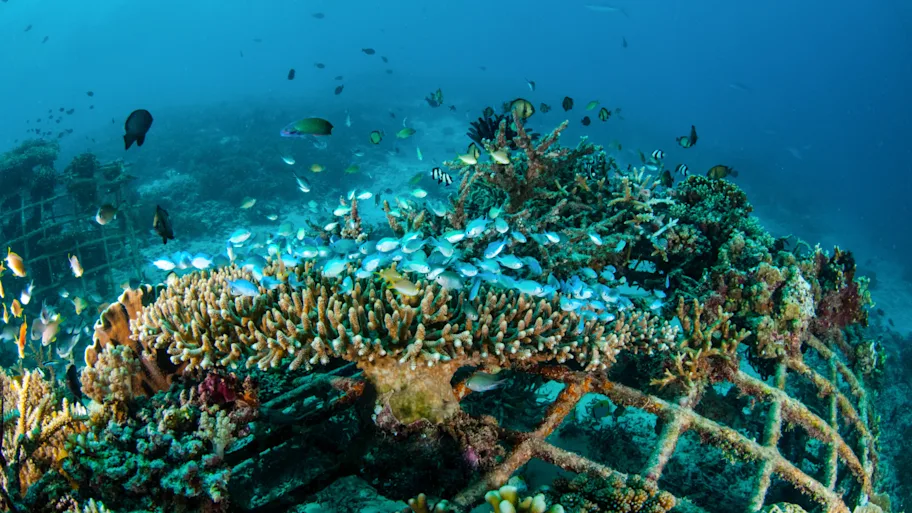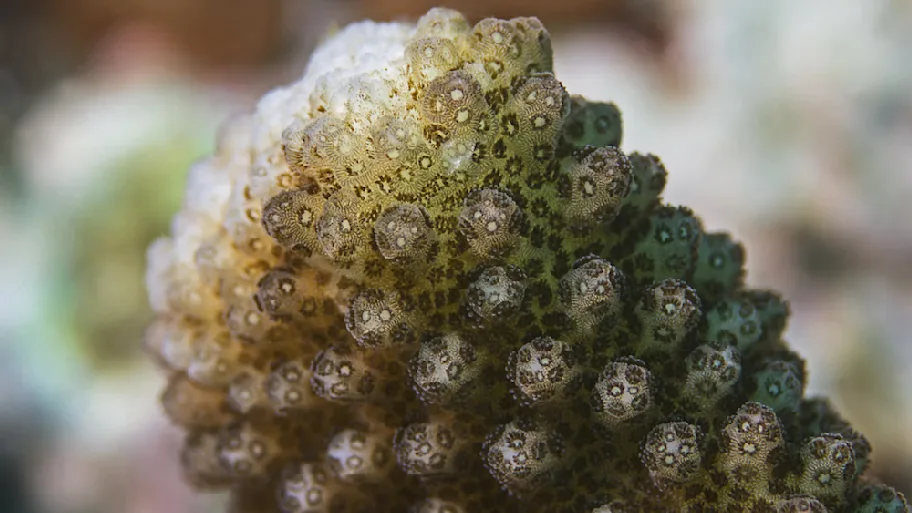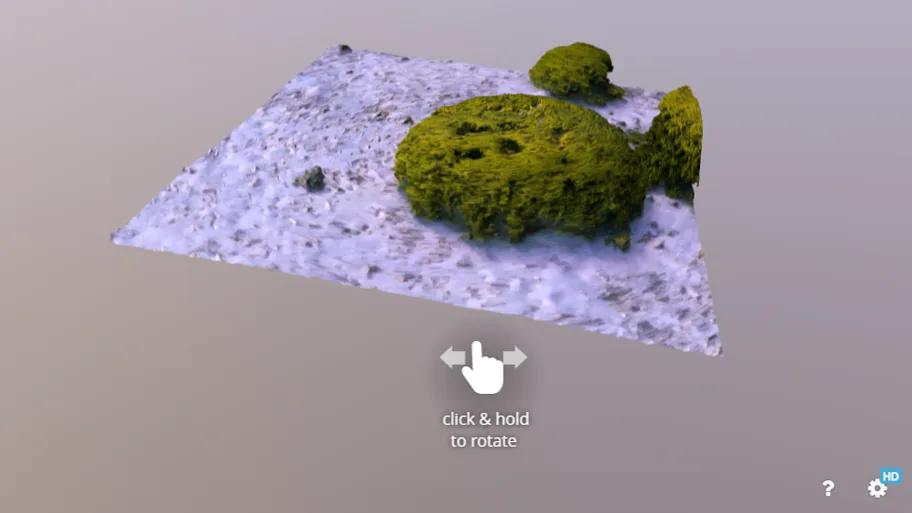
- Science news
- Frontiers news
- Aliyah Griffith – Mahogany Mermaids and Marine Marvels
Aliyah Griffith – Mahogany Mermaids and Marine Marvels
Author: Thimedi Hetti
I had a pleasure of speaking with Aliyah Griffith, PhD student at the University of North Carolina Chapel Hill, about her journey into marine science, setbacks, and achievements. With the research shift more towards coral reef management, Aliyah is hoping to partner with Barbados to explore the techniques while also partnering with the American Museum of Natural History in New York to review some of the pieces from their 4000-piece coral fossil collection.
“I want to use the fossils to try and recreate what old reefs used to look like compared to newer ones,” Aliyah hopes.

Photo credit: Frank Griffith
So, how was Aliyah’s initial interest in marine science ignited? She always knew she liked animals and was fortunate to have visited many nature centers, aquariums, and zoos growing up.
“Around the age of 8, I asked a dolphin trainer what her job was. When she answered ‘marine biologist’, I knew that was what I wanted to do. Later in high school, I did a shadowing program at an aquarium, worked at a veterinary hospital and a nature center to expose myself to multiple areas. Because of this exposure, I was certain I wanted to focus on marine science when it came to applying to colleges. Also, most, if not, all of my life I was living in coastal cities and my family is from the islands, so that played a role in me being curious about marine environments,” Aliyah reflects.
I asked whether she had any role models, in particular Black women, in marine science growing up.
“I’ve had many black women as role models, but I didn’t see any in marine science until I started at Hampton University in 2016, which is a historically black university, where our department chair was a black woman. I also did an internship that summer, where my mentor, a Hispanic man, was probably the biggest game-changing element in me deciding to get my PhD.
“I do appreciate in the last 3 years, there’s been a huge surge in the black ecology/marine science community, with many organizations picking up in speed and visibility (such as Black Women in Ecology, Evolution and Marine Science, Black in Marine Science, Minorities in Shark Sciences etc.), allowing us to realize there are more of us than we thought. It’s still a small subset from the masses, but now it’s not just two of us in the room anymore,” she points out.
Aliyah was the first African American student to be accepted and receive a degree from the University of North Carolina’s marine science graduate program. However, she highlights the pressure and imposter syndrome she experienced with this new title.
“It was almost thrown at me. Nearing the end of my degree, I went digging through the archives to verify it, I wanted to make sure there wasn’t someone who came before me who was not being recognized. It was kind of a heavy burden at the beginning because I put a lot of pressure on myself to not rock the boat. I was deep in a people-pleasing phase: I thought I had to attend every meeting and seminar, gain the highest scores, and ask the best questions to prove that I belonged there. The real wake-up call was when COVID hit and once the Black Lives Matter movement became larger and more publicized. I saw a lot of issues within the infrastructure of academia and realized it wasn’t worth killing myself to prove I could fit into such standards.
“Then there is an issue of discrimination. When I first got to UNC, it was hinted to me that people had already expressed their thoughts that I would fail. I was more than qualified when it came to applicants so to know that’s how I was perceived, when I had just started, was a bit daunting and left me looking over my shoulder constantly. I think that’s how I slipped into the overworked, people-pleasing mode, which was becoming detrimental to my health, leading to having no work-life balance.”
Aliyah is also CEO of Mahogany Mermaids, an organization she created in 2016 to address the lack of people of colour, specifically women, in aquatic sciences.
“Shortly after I did my internship with UCLA, I realized there was so much more within the realm of marine science, that I never considered. It led me onto building an organization to inspire younger generations earlier on, where, even if they realize it’s not their passion, they are at least exposed to the idea that they can have a space in the field. Especially around certain stereotypes surrounding Black individuals such as ‘Black people can’t swim’. I don’t want those ideas to limit their imagination to what they can do. It is geared to uplift and support children of colour, help them find their passion and career path by providing education resources, pathways, and connecting them with local facilities,” explains Aliyah.
We move the discussion onto Aliyah’s proudest moments.
“From a woman in science perspective, it would be the community I’ve found. It has been beyond anything I could’ve hoped for. There have been so many instances I feel like I don’t have the ability to speak on certain topics yet some peers and mentors of mine have found a way to make us all feel heard or supported. Also, and aside from receiving my Master’s, probably getting the National Geographic Explorer grant. I never saw it as being tangible, it was definitely an inner child moment, having read National Geographic magazines when I was younger.”
I finally wanted to ask Aliyah what her advice is for young people wanting to get into marine science.
“If it’s hard to get to the actual ocean, find books related to the ocean or marine environments from local libraries or bookshops. Fortunately, we’re in a time where we have the brightest, most detailed cameras possible, and they provide a good escape. For example, documentaries were my first taste of diving. I would live through people’s experiences on TV.
“Then find an aquarium, nature centre or local facility that offers what you’re interested in. Reach out to people, it never hurts to try to see what you like. No research experience is a bad experience, because it just helps you figure out what you really love and try to get as much exposure [to different things] as possible,” Aliyah offers her advice.
We end our interview with goals for the future, where she reveals the launch of her upcoming children’s book My Secret Mermaid. Alongside that, she looks forward to finalizing her project with the American Museum of Natural History, gaining her PhD and fine-tuning her next plans for Mahogany Mermaids. You can purchase My Secret Mermaid here.

Frontiers is a signatory of the United Nations Publishers COMPACT. This interview has been published in support of United Nations Sustainable Goal 5: Achieve gender equality and empower all women and girls.
About Frontiers
Frontiers is the 3rd most-cited and 6th largest research publisher. We publish groundbreaking discoveries by the world's top experts. Scientists empower society and our mission is to accelerate scientific discovery by making science open. We place the researcher at the center of everything we do and enable the research community to develop the solutions we need to live healthy lives on a healthy planet. Featuring custom-built technology, artificial intelligence, and rigorous quality standards, our research articles have been viewed more than 2 billion times, reflecting the power of research that is open for all.






